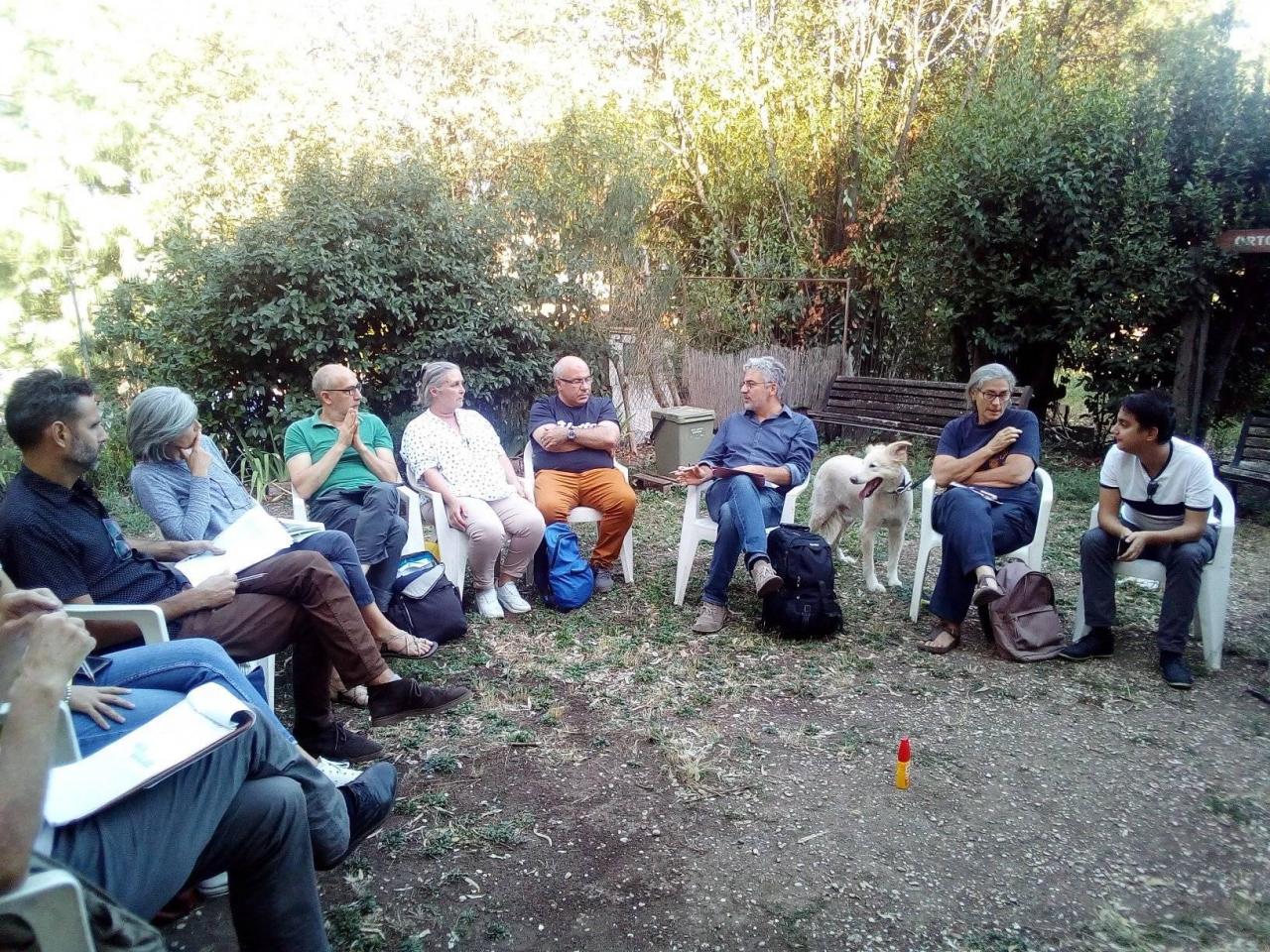
The fourth meeting of the Urbact Local Group of Rome (ULG) took place at the Center for Ecological Culture, a multifunctional environment managed by the Casale Podere Rosa Association. The meeting was attended by citizens, associations, start-ups and representatives of the Environment Department of Roma Capitale.
Mr Claudio Bordi, project coordinator, showed some slides summarizing the Transnational Meeting held in Loures on 12-13 September, and some posters produced by the ULG members of other partner cities depicting the realities of their urban gardens.
The experience and the associative capacity, as well as the lengthy work carried out by the City of Rome together with all the citizens and stakeholders, for the consultation on the Regulation of urban gardens appeared of great value and the “Improvement Plan” features all the ingredients to strengthen a practice, that of urban gardens, in which all the main themes of integrated urban development meet.
Mr Simone Giani and Ms Valentina Difato illustrated the new project of the “Social Gardens of the Villaggio 95”, focusing on social and urban gardens aimed at enhancing the knowledge, skills and abilities of citizens from different backgrounds to create an informal laboratory of active citizenship and social cohesion. The project is an extraordinary example of collaboration between different local actors: the land for the social gardens is granted on a free loan for use by the La Civiltà Cattolica Foundation to the social cooperative Europe Consulting Onlus that manages the project. The headquarters of Binario 95 (the “home for the homeless”) will host the next ULG meeting, scheduled for Monday 25 November at 16.00.
The discussion then focused on the need and urgency of a broader local dialogue through the RU: RBAN project, as foreseen by the URBACT Programme: public administrators must be made aware of the multi-faceted importance of urban gardens for the economic and social development of the territory, a real involvement of the Administration and the Districts is necessary as well as a transfer of knowledge by ULG members to their networks and vice versa, so as to disseminate the following expected results from the Improvement Plan:
1. Strengthening the cooperation between city associations and stakeholders of the urban gardens to approve and implement the New Regulation of urban gardens, as the result of a two-year process of citizen participation;
2. Approval and implementation of the Regulation of urban gardens and legalization of the
urban gardens sprouted spontaneously;
3. Creation of the Citizens Green Council (as part of the Regulation): in fact, the presence of a permanent Council on urban gardens in each of the 15 Districts of Rome is one of the elements that found all those present unanimously in agreement;
4. Transfer of competences to the Districts and strengthening of their management capacities
(as part of the Regulations);
5. Planning of possible funds for each District for the realization of urban gardens infrastructures (EU, State, Regions, Structural Funds, private donations, civil service to be carried out in urban gardens, etc.).
During the meeting, all ULG members were invited to provide their contributions to generate a "unique voice" on the Action Plan for the Improvement of the Good Practice of the City of Rome. To this end, the “Barriers to overcome for the implementation of the Improvement Plan” questionnaire, presented at Loures by the URBACT program, was discussed and all the participants' inputs were collected. In fact, the questionnaire is considered a very valuable tool to identify the actions necessary to eliminate the barriers that currently hinder the achievement of the aforementioned expected results of the Plan. At the next ULG meeting, which will be held at the venue of Binario 95 on November 25th, the achievement of the expected results from the Improvement Plan will be verified.

